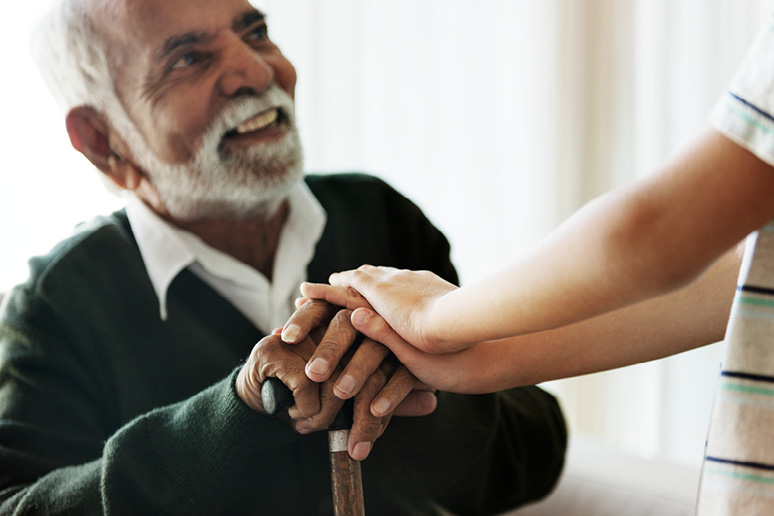More than 3.2 million adults currently reside in U.S. nursing home facilities, and that number is expected to grow rapidly. Fortunately, the vast majority of these individuals are well cared for. But elder abuse and neglect do occur, and knowing what signs to look for can help you keep your elder loved one safe, healthy, and happy.
Stay vigilant
A recent survey of nursing home residents revealed that nearly 44 percent reported being abused at some point during their residency, and 95 percent had experienced neglect. It’s important to note that elder abuse often goes unreported due to fear of retaliation or punishment. The victim may be scared, embarrassed, or even concerned about becoming a burden to family members by complaining. As such, it is often up to the family to remain vigilant, visiting regularly and asking their loved one if they are happy and being well cared for.
Types of nursing home abuse
Abuse and neglect can take many forms. The most common types of abuse and neglect affecting individuals in elder care include:
- Physical abuse: hitting, pushing, pinching, overuse of restraints. Physical abuse is the most common type of nursing home and elder abuse.
- Psychological abuse: humiliating, yelling at, manipulating. Psychological abuse also involves ignoring the individual or isolating them from others, and is most common among elderly residents with dementia, Alzheimer’s or other cognitive conditions.
- Financial abuse: direct theft, identity theft, forcing or blackmailing the victim to forfeit money. Although they vary from state to state, there are several laws protecting elder Americans from financial abuse, at the federal, state, and local levels.
- Sexual abuse: unwanted sexual attention, sexual assault. In one instance reported by CNN, an 83-year-old woman suffering from Alzheimer’s was raped by a nursing assistant during her residency at a nursing home in Minneapolis. In 2015, her daughter made the following statement:
"At 83 years old, unable to speak, unable to fight back, she was even more vulnerable than she was as a little girl fleeing her homeland. In fact, she was as vulnerable as an infant when she was raped. The dignity which she always displayed during her life, which was already being assaulted so unrelentingly by Alzheimer's disease, was dealt a final devastating blow by this man. The horrific irony is not lost upon me ... that the very thing she feared most as a young girl fleeing her homeland happened to her in the final, most vulnerable days of her life."
Signs of nursing home abuse
If you notice any of the following signs or symptoms of nursing home abuse or neglect, report the problem immediately.
- Fractures
- Bruises or welts
- Cuts or lacerations
- Bed sores
- Recurring infections
- Dehydration
- Mood changes (agitated, reclusive, withdrawn, afraid)
- Refusal to eat
- Sudden weight loss
- Poor hygiene
Financial abuse won’t leave a physical mark, but there are still signs to look out for. According to the attorneys at Knapp & Roberts, these include:
“Sudden loss of funds, the inability to pay for things, or forged signatures on checks and other documents can all point to elder financial abuse. If your loved one doesn’t remember signing a check, treat it as evidence of exploitation. As soon as someone notices any unusual transactions, unapproved withdrawals, or missing assets or property, it should raise a red flag for potential financial abuse.”
The above signs can be related to something other than abuse or neglect, especially if the person in the nursing home is isolated. However, when multiple issues are present or you have a general feeling that something is wrong, take immediate action. Talk to your loved one and to nursing home staff. If you don’t feel that your concerns are being addressed, it may be time to look for another home.
Where to report
You can go to the National Center on Elder Abuse website to obtain information on how to report suspected abuse. You can also contact the victim’s primary care doctor. Resources will vary by state. In New York, state government agencies including New York Office for the Aging and New York Adult Protective Services are available to assist you; in Georgia the Division of Aging Services, Elder Rights & Advocacy Programs can help; and in Kansas the Kansas Long-Term Care Ombudsman is available, to name a few examples. A comprehensive list of state government agencies is available on the National Center on Elder Abuse website.
Regardless of where the abuse is taking place, you should call 911 if you believe the victim’s life may be in immediate danger.
Contact a nursing home abuse attorney today
When you place your loved one in a nursing home, you want their best interests to be looked after at all times. If you suspect nursing home abuse or neglect, an experienced nursing home abuse attorney can help you determine how to proceed.
 By Amy Carst,
By Amy Carst, 

